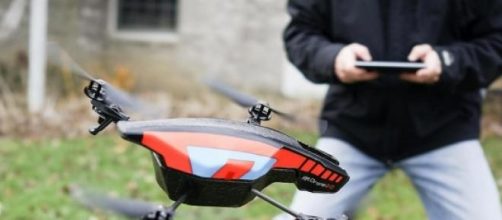The dream of Amazon to inaugurate deliveries using drones is a small step forward. The e-commerce giant has in fact received a special "experimental airworthiness certificate" from the US authorities to test the drones, with flights only during the day and with the pilot. The OK came from the Federal Aviation Administration (FAA) that issued the company a certificate to kick off the flight but only in the experimental stage, and not yet a full-fledged license for commercial usage.
The Amazon CEO Jeff Bezos announced in 2013 his project "Prime Air" for deliveries with the drones in 30 minutes and last July had asked the FAA for permission to experiment with the idea. Now comes the green light for testing, on the basis of certain rules issued by the same authority a few weeks ago. These include the requirement to fly drones under 400 feet (about 122 meters), only during the day and when weather conditions does not impede the view. The pilot must have a license to fly, a medical certificate, and must keep visual contact with the drone. Amazon will give the institution a monthly report with data on the number of flights conducted, the working hours of pilots and any unusual and malfunctions of hardware and software.
Although it is not the final authorization, the ok is an important step for Prime Air. The colossus of Seattle is not the only one with similar aims. Google with `Project Wing' and the Chinese e-commerce giant Alibaba are in fact working on similar services and DHL has been the first to launch such a service. With their project Parcelcopter, they used drones last September to deliver medicines and basic necessities to 2 thousand residents of the island of Juist, part of the archipelago of the East Frisian (North Sea), traveling at a speed of 65 Km per hour.
There is a strong competition, then, in a market that, according to data from the Association for Unmanned Vehicle Systems International, will be worth $13.6 billion in the United States and will create 70 thousand jobs in the next years.
© ALL RIGHTS RESERVED

